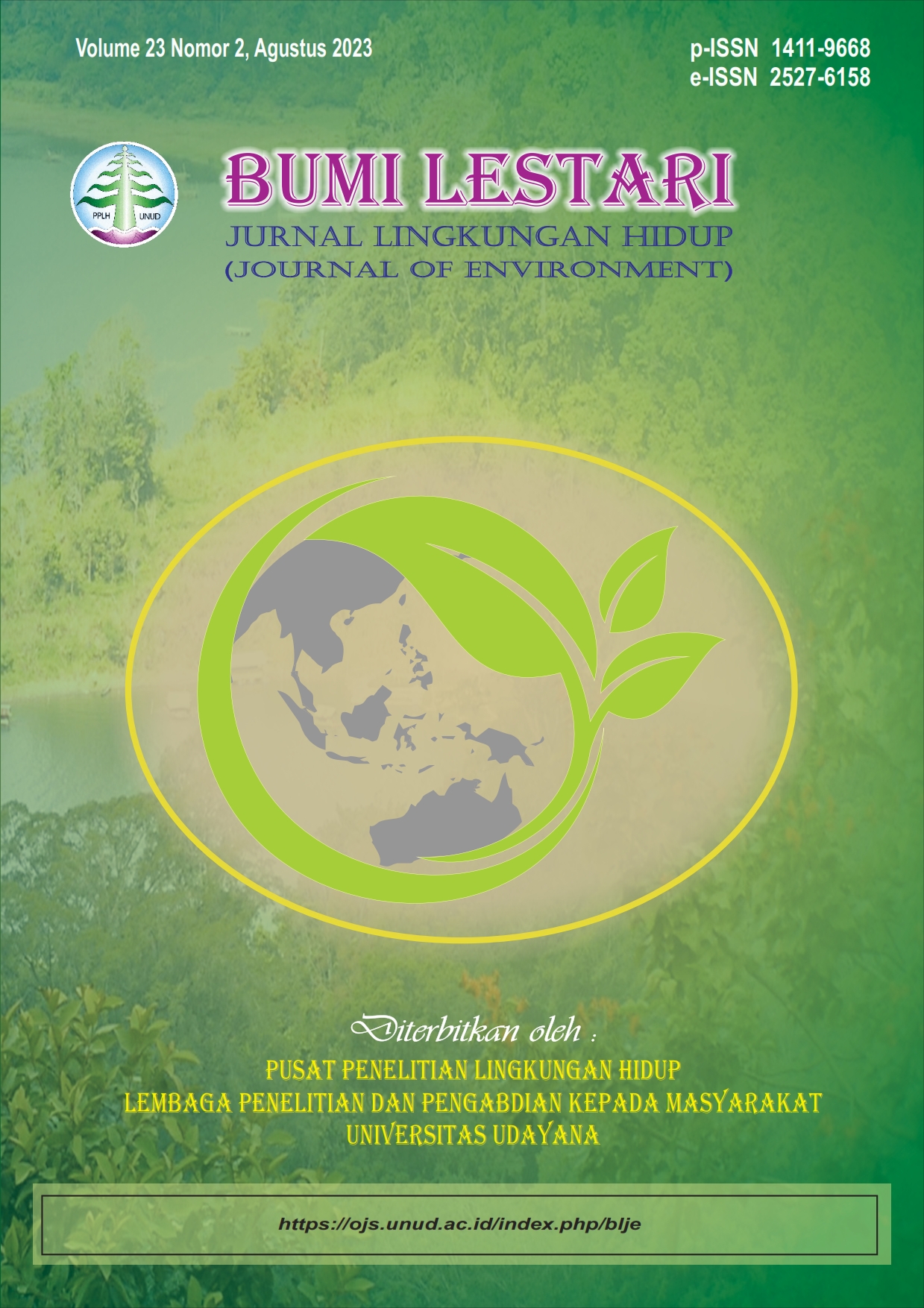Pengaruh Hutan Mangrove pada Mitigasi Intrusi Air Laut di Surabaya
Abstract
Seawater intrusion is the entry of seawater into the land through the soil pores. Seawater intrusion harms sanitation activities. Surabaya constitutes a city with a high population density, which leads to high demand for water that is not proportional to the water input that cause seawater intrusion. Mitigation efforts to minimize the occurrence of seawater intrusion were by planting mangrove forests which act as coastal protection systems. The purpose of this study was to determine the water quality of the wells in Kenjeran and Rungkut, as well as to determine whether the presence of mangroves could affect the water intrusion mitigation. Samples were taken from 2 stations in Kenjeran and Rungkut with 3 sampling points and 3 repetitions. The parameters measured were consist of salinity, electrical conductivity, chloride, and total hardness. The samples of laboratory results were analyzed comparatively with the Kruskal Wallis test. It showed that the water in the coastal areas of Kenjeran and Rungkut was categorized as saline water with an average salinity value ranging from 3.1–7.2 ppt. Electrical conductivity values ??ranged from 6916-7993 mmhos/cm. Chloride values ??ranged from 1825-3848 mg/l. Total hardness values ??ranged from 320-1025 mg/l. Based on the values ??above, the quality of well water in both locations is classified as having experienced seawater intrusion. The existence of a mangrove forest landscape has no significant effect on mitigating seawater intrusion, this is presumably because the low percentage of mangrove cover (3.2%) cannot degrade seawater intrusion in Rungkut.
Keywords: Groundwater; Mangrove Forest; Mitigation; Sea water intrusion; Surabaya.
Downloads
Authors who publish with this journal agree to the following terms:
- All articles published by Bumi Lestari Journal of Environment and Environmental Reseach Center Udayana University are made available under an open access license worldwide immediately. This means everyone has free and unlimited access to the full-text of all articles published in Bumi Lestari Journal of Environment, and everyone is free to re-use the published material given proper accreditation/citation of the original publication. Open access publication is supported by authors' institutes or research funding agency by payment of a comparatively article processing charge for accepted articles (See Author Fees). Bumi Lestari Journal of Environment and Environmental Reseach Center Udayana University publish articles under the Creative Commons Attribution License.
- Authors are able to enter into separate, additional contractual arrangements for the non-exclusive distribution of the journal's published version of the work (e.g., post it to an institutional repository or publish it in a book), with an acknowledgement of its initial publication in this journal.
- Authors are permitted and encouraged to post their work online (e.g., in institutional repositories or on their website) prior to and during the submission process, as it can lead to productive exchanges, as well as earlier and greater citation of published work (See The Effect of Open Access).





